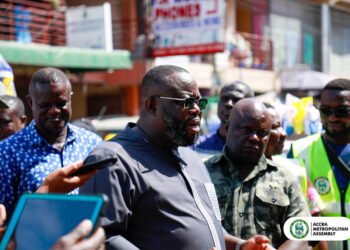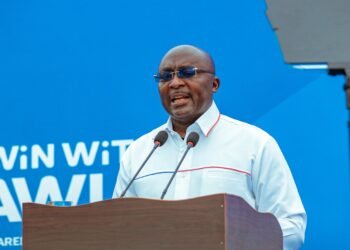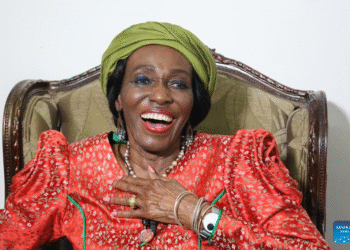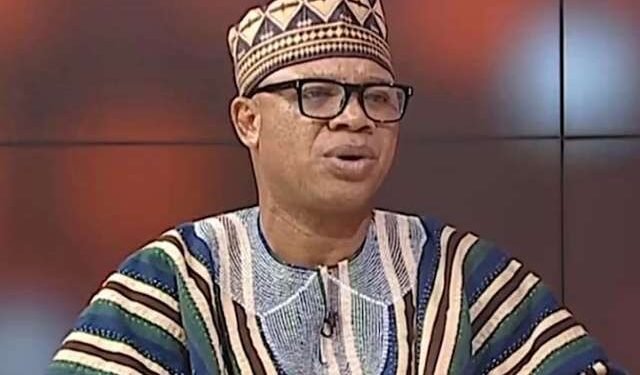The Attorney-General and Minister of Justice, Godfred Yeboah Dame, has advocated the promotion of renewable energy use in schools.
He said that would not only ensure a regular supply of electricity to improve the learning environment but also avoid situations where the power supply to some institutions was cut for non-payment of electricity bills.
“As is clear, solar energy is derived from a natural source that is replenished at a far higher rate than it is consumed. Together with wind, and sunlight are sources of energy that are constantly being replenished. Solar energy is the most abundant of all energy resources and can even be harnessed in cloudy weather.”
Hon. Godfred Yeboah Dame, Attorney-General and Minister of Justice
Mr. Godfred Yeboah Dame said the UN Climate Change Action Policy had estimated that the share of renewable and solar energy use in the global power supply system would more than triple by 2050.
He highlighted that Secondary education is critical to the growth, development, and future of the nation as it results in a more enlightened and empowered society.
“That is why the Free SHS policy introduced by the government is a serious game-changer for this country’s future. The supply of reliable, efficient, and affordable energy is necessary for the sustenance of the Free SHS program.”
Hon. Godfred Yeboah Dame, Attorney-General and Minister of Justice
The Attorney-General and Minister of Justice also said that the adoption of free SHS which had made education accessible, implies an increase in the energy demands of schools.
Citing a UN Climate Change action report, Mr. Godfred Yeboah Dame said the rate at which solar energy was intercepted by the earth was about 10,000 times greater than the rate at which mankind consumed energy.
“By dint of Ghana’s privileged location on the planet, we are endowed with solar energy as a country. We cannot miss out on the opportunity sunlight provides to make a significant contribution to the energy mix for every senior high school, especially the boarding institutions,” the Attorney-General said.
He said although the initial installation might entail some cost to institutions, “I recommend that for less privileged institutions, there must be cooperation like public-private partnership”. Solar energy, Mr. Dame added, has the potential to create more jobs for the people.
Measures to Promote Renewable Energy
The government of Ghana has taken several specific measures to promote renewable energy use in Senior High Schools (SHS) through the Energy Commission Senior High Schools Renewable Energy Challenge (Schools Challenge).
This initiative, launched in 2019, is a collaborative effort between the Energy Commission of Ghana and the Ghana Education Service. The challenge aims to foster interest in renewable energy and energy efficiency among students in second-cycle institutions, such as SHS.
The challenge seeks to enhance the research skills of Senior High School students and promote technological innovation in renewable energy and energy efficiency.
Again, it aims to instill in students a passion for solving renewable energy, clean energy, energy efficiency, and climate change challenges through innovative research.
The Attorney-General said this situation can, however, be changed with an educated population, “that is why the government will spare no effort in ensuring that the free SHS policy succeeds”.
The Energy Commission Senior High Schools Renewable Energy Challenge (Schools Challenge) provides a platform for Senior High School students to showcase their innovative renewable energy projects developed using locally available materials in their environment.
He said training students with 21st-century skills was essential in preparing the nation’s future workforce for the fourth Industrial Revolution through STEM education.
“Even though the manifesto of the New Patriotic Party, prioritized the study of STEM in its 2016 and 2020 manifestos, it was the re-imagination of education, in the advent of COVID-19 and preparing the youth for jobs that reinforced the need to increase the percentage of students undertaking general science in SHS.”
Hon. Godfred Yeboah Dame, Attorney-General and Minister of Justice
These measures are part of a broader effort by the government to integrate renewable energy into the educational curriculum and foster a culture of innovation and sustainability among students. The challenge not only aims to educate and raise awareness on renewable energy and energy efficiency but also to inspire and guide students in exploring renewable energy concepts, thereby promoting the use of renewable energy in schools.























